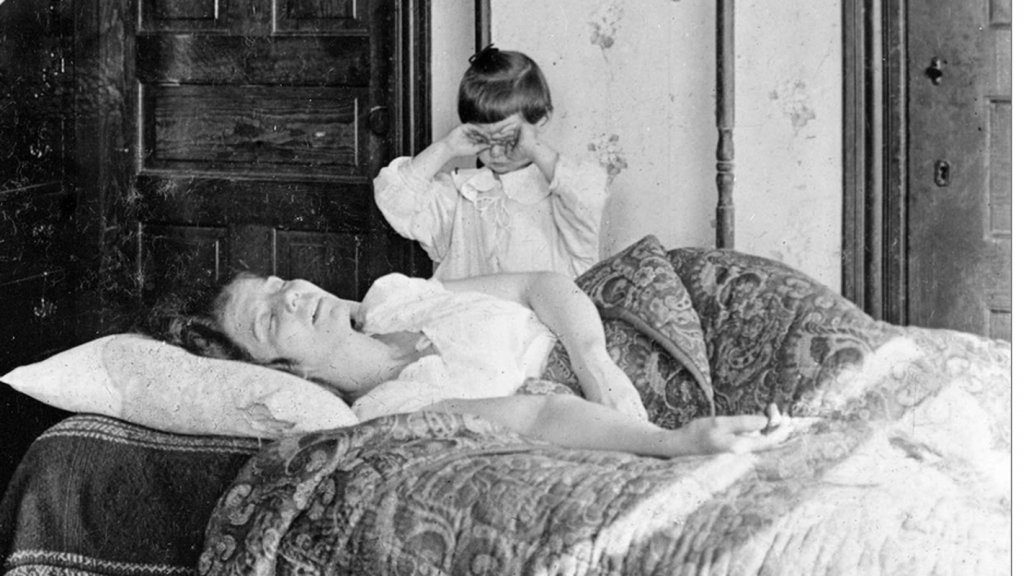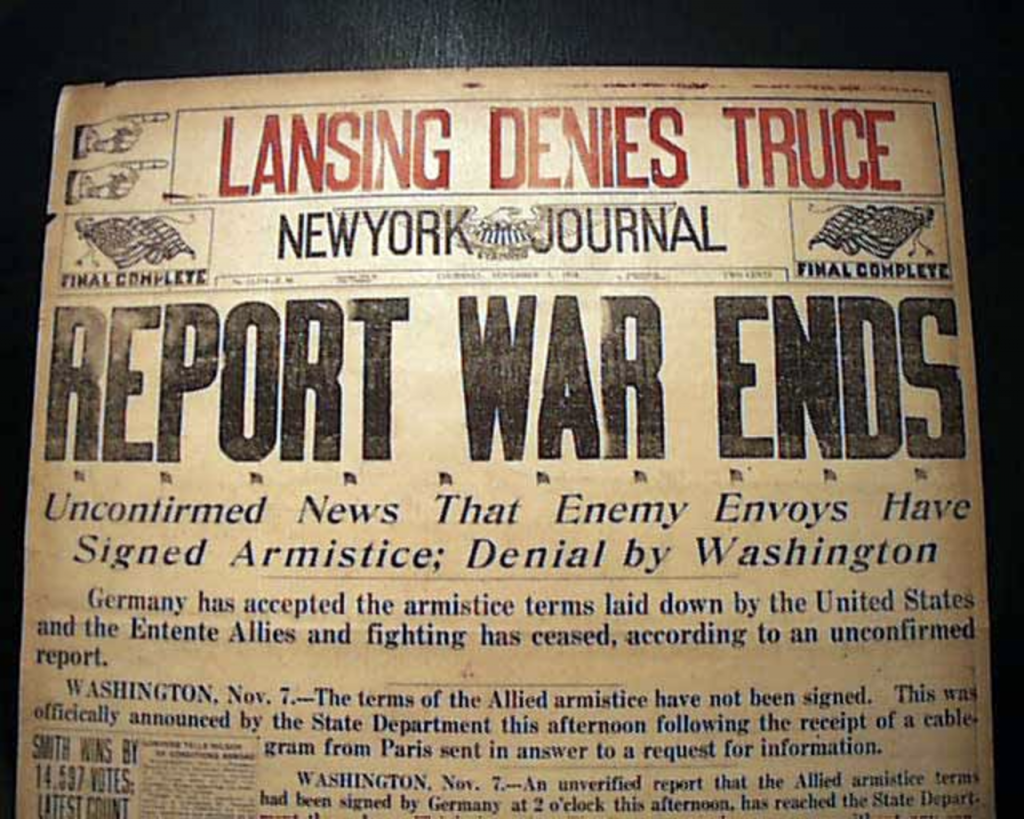
So who do you believe? The media or a group of students?
A fair question but when you dig a little, you find it’s not completely fair, you find a deeper understanding.
Day 61, November 7, 1918. Here is what happens.
Newspaper around the US publish in blazing, black, and thick-block print the following headline on the front page:
THE WAR IS OVER!
Uh. Nope. Turns out it was a false report retold in apparently official ways and then it’s off to the races—make it the headline for today’s edition!
Hundreds of thousands of Americans opened their newspapers, see the headlines, and then…
…run out their front doors, side doors, screen doors, any thing resembling a door that allows them to sprint through to get into the streets, downtowns, and public squares. Like sparks on gasoline, the news ignited an explosion of spontaneous celebrations as Americans shout their joy and happiness at the news of the end of the World War.
Think of it—a world no longer at war.
In the midst of jostling, hugging, and more, the remnants of influenza are there with the gleeful crowds.
A doctor in Iowa witnessed one of the celebrations and shook his head. “All precautions which the board had urged the public to take,” he lamented, “had apparently been forgotten in the excitement which resulted from the fake message that peace was at hand and that hostilities had ceased.”
Oh well.
It’s a sign of the depth of feeling that the World War has created among Americans. They want it over, done, won, and finished. They want them all back, all the soldiers not yet killed and even some who are so they can be buried at home. They want the wounded healed and the disturbed restored. The slightest hint of the war’s end and a joyous pandemonium ensues. The feeling is pent-up and ready to explode when the real thing is the true thing. You can’t blame them.
There was more solid ground under the feet of a group of African-American girls working on a high school assignment today. They’ve been back in school for about a week and their teacher is frantic to catch up on missed classwork. The girls are writing essays now to a former teacher at the school who is fighting the Germans in France. The girls’ essays inform the teacher-turned-soldier that influenza has been in their city of Indianapolis, Indiana, that some of the girls have been sick but recovered, and many in the city have died. One of the girls confesses that she wouldn’t mind if school closed again.
Across the US in Anacortes, Washington the town continues to reel from influenza. Just today, a 41-year old woman, a 10-year old girl, and a 21-year old man die. A locally prominent lawyer is also dead from a few days ago and today residents are still talking about his loss.
Down the West Coast in San Francisco, the masks are coming off. People want to talk freely again. A face is more than eyes.
A thought for you on Day 61, May 12, 2020, sixty-one days after President Trump declares Covid-19 a national emergency—the doctor in Iowa. He watches the people celebrating and he is dismayed. Why can’t they understand? Didn’t we tell and teach them? Don’t they remember the awfulness of yesterday? You can sympathize with his response. Well, yes, they remember, they learned, and they understand. The doctor’s work is not for naught. He should take solace in that fact. But life is also emotions tied to experiences that have a life of their own. The war is such a gigantic departure from what they’ve lived that their reaction to it will break through walls and boundaries built in another time. Which also means that sometimes the reactions will get a boost from something other than accurate information and truth. There is a disappointment in things, in events and results. Then there is a disappointment in people. It’s a different thing than the disappointment over an abstract object, entity, or quantity. The human and the person make it different. Yet I’m not sure which is more difficult—to be disappointed in a person or a group. Perhaps we should remember that at some point we’ll be disappointed with ourselves, too. The humility that comes with recognition of one’s own failures and failings will help soften and cushion the reaction to other persons and people who you perceive as letting you down. The disappointments of Covid-19 will carry additional hardships. To lighten the load is to remember that, to and for someone, you have also been part of it and soon enough will be again. For now, though you may wish they were doing otherwise, let them sing.

(note to reader—I invite you to subscribe to this series/blog. The purpose of my posting in this series is the purpose of my enterprise at Historical Solutions—to explore the past in a new way that brings new and different value to you, both in the present (this minute) and on the edge of the future (what’s ahead or forward of this minute). The past is everything before now, the totality of all time before the present; history is a set of very small slices of the past that, for a particular reason, have been remembered. If you wish to contact me privately, please do not hesitate to text or call 317-407-3687)







